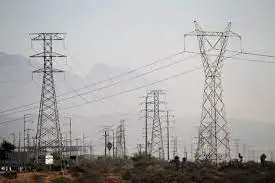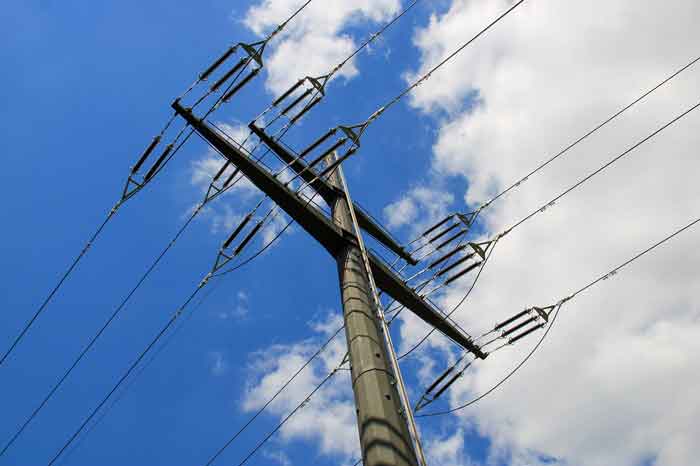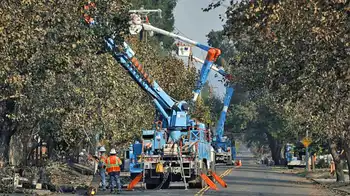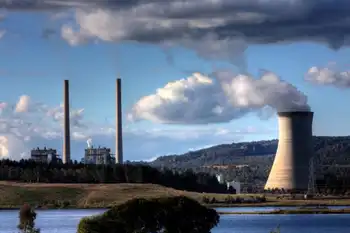Residents band together to fight wind turbines
By Associated Press
Substation Relay Protection Training
Our customized live online or in‑person group training can be delivered to your staff at your location.

- Live Online
- 12 hours Instructor-led
- Group Training Available
The 400-foot-tall turbines tower over trees atop ridges, some just a mile away. At night the structures' bright red lights blink intermittently, even reflecting in their lake, Tesa Whitley said.
"We had a beautiful horizon, and now all we see is turbines," she said.
Folks in several nearby towns, about 100 miles southwest of Dallas, are fighting to make sure the same thing doesn't happen to them.
They are warning their neighbors about the 99-year leases being offered by an energy company, saying they are full of restrictions and false promises of big bucks. They say the companies are swooping in — even into areas that aren't as windy — because federal tax credits for wind developers expire at year's end unless Congress extends the subsidy.
Opponents also are holding meetings and erecting yard signs against turbines, disputing that wind energy works at all. They say wind doesn't blow enough during peak demand, so it is a small part of the electricity grid's generating capacity. They say that unreliability isn't worth sacrificing their scenic vistas and high property values.
"The reason people bought here is because of the view," said Gary Key, whose home atop a Morgan Mill ridge has a panoramic view of the rolling tree-dotted countryside. "We've got a huge investment, so we can't afford to pick up and move."
Texas already generates more wind power than any other state, about 5,600 megawatts. The Texas Public Utility Commission has given preliminary approval for a $4.9 billion plan to build new transmission lines to carry wind-generated electricity from West Texas to urban areas in other parts of the state.
Billionaire Texas oilman T. Boone Pickens, who has plans for a giant wind farm in the Panhandle, recently unveiled his plan to erect wind turbines across the Midwest to generate electricity and reduce U.S. dependence on foreign sources.
Wind is a clean, free domestic resource that doesn't use water like nuclear power plants, said Susan Sloan, an American Wind Energy Association spokeswoman. Energy companies do lengthy, detailed studies before deciding where to put turbines and would not build if the project were not profitable, because tax credits occur only if power is produced, she said.
"We need more electricity in this country, and wind provides a very good balance to what we have right now," Sloan said. "I understand why people would be concerned and want to explore these issues... but beauty is in the eye of the beholder. For some people they represent a new era, where we are getting smarter about energy choices."
Most of the state's turbines are in windy West Texas, a sparsely populated region where the landscape is largely barren or already pockmarked with oil drilling and exploration equipment.
But energy companies are now moving into more populated, scenic areas with less wind.
In Central Texas' wildflower country, Fredericksburg and Gillespie County recently blocked a wind turbine project. Local leaders and a group called Save Our Scenic Hill Country Environment argued that it would hurt tourism because the turbines would have been 2 miles from Enchanted Rock state park. Also, the county ranked 20th out of 25 areas studied by the state for best wind potential.
"These landmen (with leases) come into the area like termites, and by the time they come to the surface it's almost too late, but we found out about it soon enough," said Fredericksburg City Councilman Tim Dooley.
In Erath County — considered marginally windy, so ridges are the preferred sites — folks said they were surprised when representatives started showing up with leases but refused to discuss terms unless landowners first signed a confidentiality agreement. That meant they could not find out what their neighbors were offered and try to negotiate for a better deal.
Some said the lease terms are $4,500 per landowner, no matter how big their property, plus up to $4,000 in annual revenues from each turbine, which requires 40 acres. Most leases are for 99 years and restrict hunting, growing crops and other uses for a period of time, some residents said.
Those who don't live on hills where turbines would be built are also being offered leases as "hush money" so they will be less likely to complain or sue, or so the company can build roads or transmission lines across their land, some said.
But the companies don't have to obtain leases for transmission lines — they can use eminent domain — if turbines are already built, according to several homeowners and attorneys.
"That's why we need to stop people from leasing for the wind turbines. There's a whole group they'll have to cross, and we're united," said Carroll McInroe, who recently organized a community meeting.
FPL Energy has not decided whether to proceed with the project in Morgan Mill and Huckabay because officials are still studying the area's wind and transmission lines and talking to landowners, said Steve Stengel, a spokesman with the Juno Beach, Fla.-based company, a subsidiary of FPL Group.
He declined to discuss the company's lease terms and said people are required to sign confidentiality agreements because information in the contracts is proprietary.
"FPL Energy is the largest wind provider in the United States and Texas, and we could not do what we do without landowner partnerships," Stengel said.
In Lingleville, Charley Leatherwood said he is not mad at his neighbors who signed leases because he believes in property owners' rights. But the view is now different across the 2,400-acre ranch that has been in his family for several generations.
"Every evening we sit out there on that patio and have a glass of tea and watch the sun go down," Leatherwood said. "Now we get to go out there and watch blinking lights. It's just a sea of lights."











